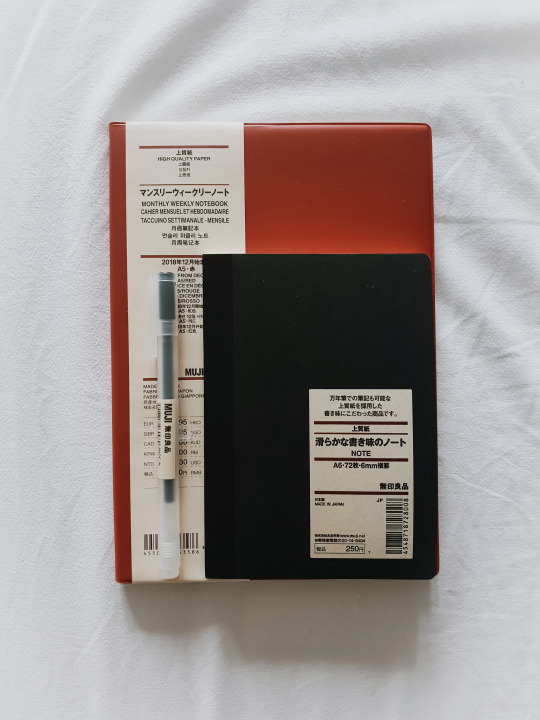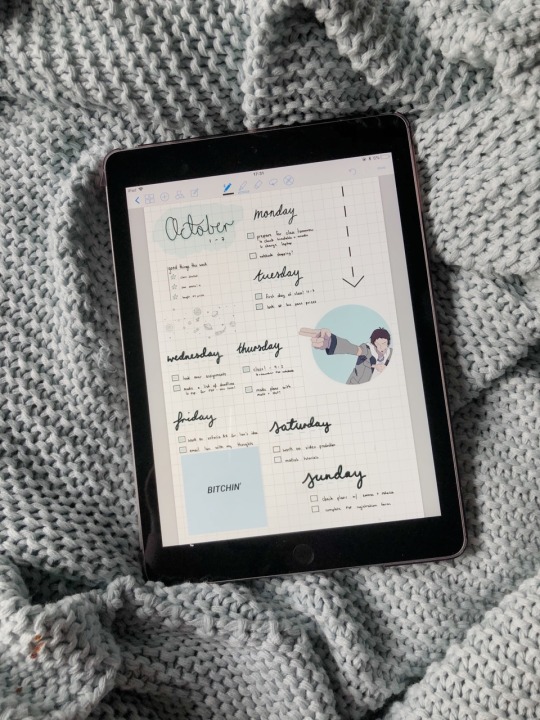Text
undergrad (physics/stem?) tips from a struggling neurodivergent
i’m finishing my degree this year so i thought i’d share some of the things i’ve painstakingly and slowly learnt over 4 years of studying physics at university. i started out by failing foundation mathematics, then all of my first year physics modules, but despite never having to go back and pass these basics (thanks covid) i’m somehow doing well in third year. so, here is my wisdom:
[disclaimer: of course, the way i study will definitely not work for everyone so only take the parts that resonate. this is not the healthiest way to study, but rather how i personally am getting through such a hardcore course with limited physical and mental energy.]
past exam papers. look for patterns and types of questions that are asked often, and focus on understanding those. if you’re lucky this could be all you need to get a great grade.
don’t worry about understanding whats going on in lectures. sitting in lectures and not knowing what the hell was going on used to stress me out to the point that i stopped going, but i found that actually, just turning up and calmly copying down the maths and notes without understanding them really helped me piece it all together later, on when studying on my own.
similarly, i find copying out the notes without trying too hard to understand them to be very helpful. it is very time consuming, but worth it when no information will sink in by just reading through the notes. even if you still don’t understand it all after writing it out, you now know what information is covered, where to find it, and you hopefully have it in a clearer, more interesting to look at format to help you later.
learn on your own terms. don’t listen to what any other people say about how you should study. you know what works for you. its always stressed here how important it is to go to lectures and tutorials, but i know that for me, a lot of the time my energy is better used by staying at home and teaching myself in a calm, comfortable, low pressure environment.
hyper-organisation. have as many planners as it takes to keep a grasp on time and schedules and deadlines. i have a bullet journal, a pre-made planner to scribble in, a planner and tables of dates and deadlines on notion, as well as sticky notes above my desk reminding me of the main things i should be working on at the moment. keep it all in front of you where you can see it, or make it easy to access.
create a nice environment. this is possibly the most important part. make it so that sitting down to work is enjoyable, and setting up doesn’t take valuable brain power. playlists of background music ready to go, everything you need nearby and organised and easy to access.
ask for adjustments, extensions, ECs. i’m still not good at this, but it can really make all the difference. when you can’t complete something in time or the thought of doing a thing alone makes you feel like dropping out, its always worth asking if something can be done to make it easier for you. (for instance i usually skip presentations and take the 0 but after asking, i have been allowed to make videos instead and sometimes even just make the powerpoint and write out a script.)
a consistent sleep schedule would be great, but don’t sweat if your class schedule makes it difficult. i work best at night, but lectures mean i have to wake up early in the morning. i have tried going to bed early and while that made waking up and going to classes easier, without my nighttime productivity i got way behind on everything. so instead i let my body do what it wants when it wants, which usually means sleeping less at night along with naps in the day and a lot of catch up sleep at the weekend.
caffeine can be your best friend or worst enemy. use it wisely. (i owe my second year grades to the ginger monster energy flavour)
know when to push and when to rest. sometimes you know its just executive dysfunction stopping you from getting things done, in which case gently push yourself to keep working. even if you don’t manage much, any amount of productivity is good. but on the other hand, if you keep trying and trying and its still not working, thats probably a sign you should stop. if you don’t make time for rest, your body will take it for you.
on that note, if you really can’t focus, stop to think about whats actually wrong. sit still, relax for a moment and zone in to yourself. is it because you’re hungry? cold? understimulated? do you not have all of the materials you need right in front of you? it could be something as simple as the lighting being off, or things being in the wrong place on your desk.
break it down. when i’m stuck, most often the problem is that i don’t clearly know what to do next. break tasks down into steps, and then break those down again until you have small tasks you can easily face. baby steps are the way to go.
something is always better than nothing! you don’t have to put your all into everything. if you’ve got 60% to give on an assignment, thats great. even 40%, 20%. handing in something bad and unfinished is still worth it, and sometimes all you need.
in short, just be gentle with yourself. go at your own pace and do things in the way that works for you. you’re doing your best. there will be ups and downs, but if you keep going, no matter how slowly, no matter how much it may seem like all is lost, you’ll get there eventually.
775 notes
·
View notes
Text
Task Management:
Creating + Maintaining a Schoolwork Schedule
Key elements
Your schedule suits your individual time/task management preferences.
It is flexible enough to accommodate sudden changes, plus fluctuating energy levels, states of concentration, symptoms and moods.
Daily tasks are not over-whelming; they are small enough that they are achievable.
You do not get “burned out.”
It allows you to be consistent.
Steps to create your schedule
Decide if you want your planner to be paper or digital
Find an “order” that’s logical and achievable for you (more on this later)
Refer to your addendum/syllabus and write down all the assignments, tests and other events taking place that week/month (and their due-dates).
Then break these down, assigning tasks to each day of the week (more on this later).
Break down your tasks even further (more on this later).
Decide if you want to follow a simple daily to-do list or a timed schedule (more on this later).
Find your “order(s)”
Mandatory: Schedule assignments around other commitments (work, social, hobbies, etc.).
Do the hardest task first to get it out of the way (so that the rest of your tasks are less daunting, and because your smaller tasks require less energy therefore can be done even after completing the hard task).
Do the easiest task first to build momentum (give yourself a feeling of accomplishment which will motivate you to continue, and boost your self-confidence early in the day to establish a positive mindset for the rest of the day).
Do the task that’s due first to minimize deadline stress, and so your assignments don’t fall through the cracks (causing you to get discouraged and lose momentum).
Plan according to your energy level throughout the day and week: Do you have Pilates once a week? Maybe you can reserve that day for easier assignments. If you know you’re going to be tired for whatever reason, account for that in your planning.
Consider your state of concentration: If you know you’re too groggy or spaced out for the first hour of your day, you can either schedule easy tasks in that time, or none at all. If you take a medication in the afternoon/evening that makes you tired, schedule easier tasks or none, and get harder tasks done earlier/later in the day. If you have ADHD and crowded places mess with your concentration, but you like studying at a café, go when it’s not busy.
Be mindful of your emotions and symptoms: If you have depression, or are prone to depressive episodes, you’ll need to consider that when scheduling. You might have to rework your entire schedule when you get into a depressive episode (like adding lots of breaks). If suddenly you’re going through a big life event (like a breakup), you need to account for that when scheduling. For instance, if you can’t stand to be alone, maybe you can go out instead of staying in, and if your motivation is low, you may need to up your reward-system or break down your tasks even more.
Break down this week/month’s tasks
Refer to your addendum/syllabus and write down all your due dates for the time period you’re scheduling for.
Based on due dates, outside commitments, predictions of energy/mood/symptoms, assign assignments to the days of the week/month that make most sense for you.
Break down daily tasks into sub-tasks
You can do this (in advance) for your full week/month’s assignments, or do it every morning/evening.
Generally, your assignments will follow a variation of this formula: brainstorm, create an outline, research, write rough draft, edit and revise. Test/exam prep will look something like: check to see what the test is based on, pinpoint important sections, review to see how well you know the material, create a list of items to study, rewrite select notes, make flash cards, study topic 1, study topic 2, etc.
What are the individual components of these steps? Here are some examples. Brainstorm: what should my topic be, what should my thesis be, what points can support my thesis, what do I need to research, what questions do I need to ask my prof? Outline: topic, thesis, points, conclusion. Research: write down all the important parts from each source (separately), then sift through to sort into Supporting Point 1, Supporting Point 2, etc. Rough draft: opening statement(s), intro, point 1, point 2, etc., conclusion, closing statement(s). Edit/revise: read and check for grammar only, then read again and check for spelling only, read again and check for cohesiveness only, etc. Topic 1: Part A, Part B, etc.
Each of these small components can be individual items on your to-do list. Big tasks like, “write essay” are too big for most people. Even “write rough draft” is daunting. If you start with something specific and small like brainstorming, and work your way up, it’s a lot easier to approach. Plus, being able to check off tasks more often and more easily will boost your confidence and your sense of competence, thus building momentum.
Here is a sample to-do list: Research X for Point 1 of Literary Essay, create outline for History Essay, Edit/Revise Assignment 1, study Topic 1 and Topic 2 for Test 1.
To-do list or time-based schedule?
To do list: Write down all your assignments for the day. Put them in the order you want to do them, or go through them intuitively (based on what you feel like doing, or what’s most practical at the time/place you’re at).
Timed-based: Write down all your assignments, then write down the time you’re going to do each of them. You could set reminders or alarms if you want, or simply refer to the list. There’s an awesome app I recommend if this is your thing. It’s called Structured (iOS only).
Curate your study environment for maximum focus
Eliminate distractions such as uncomfortable clothing, sounds (or silence), phone and computer notifications, clutter in the room and on your desk, people who may try to talk to you (shut your door and/or inform them that you’re busy).
Designate a space to doing homework only and avoid spaces that you associate with other things (do not study in bed, as you will want to relax or sleep, and/or you will mess with your sleep by weakening the bed’s association with sleep).
Build associations: Incorporate other events and items into your study/homework routine that you only use while doing that, so that you associate those things with studying/homework (examples: specific playlists, pencils/pens, cups/bottles, scents, rituals, decor, etc.).
Ensure good lighting (preferably including daylight).
Get dressed in clothes that make you feel good about yourself. They don’t have to be “professional” and they should definitely be comfortable. Do not stay in your pyjamas. Believe me, I know this can be hard, and I love PJ’s. But they are not good for productivity.
Don’t “multi-task.” It may feel like you’re getting more done this way, but by splitting your focus, not only do tasks take longer, they also diminish in quality. Commit to the task you’re doing.
Meditate: You can even meditate for just 1-5 mins right before studying, homework and/or classes.
Practice self care (daily!)
Sleep (enough, well, and regularly).
Daylight: Get outside, work by windows, use a light therapy box. These can help regulate your sleep, improve and maintain mental health, and boost energy.
Fresh air: Getting outside even for a couple minutes can help you refresh and reset, and feel good about yourself and your life. Fresh oxygen can help you wake up and is great for your health. Even just opening your window can do a lot for your mood, energy and motivation.
Movement: Try to move at least once per day. The benefits of exercise are numerous and immense.
Healthy and consistent eating: Avoid spikes in insulin levels by eating regularly so you don’t have extreme dips in your energy level. Also, brain power uses calories too, so make sure you’re eating consistently, and try to eat healthy. There are so many other reasons eating consistently is good for your health (and by extension, your productivity).
Relaxation and leisure: Make time for fun and socializing, as well as intentional relaxation. Hobbies, movies/tv, time with friends/family, meditation, baths, progressive muscle relaxation, etc.
Therapy: Your therapy sessions are not daily, but you can do 5 minutes of inner-work per day based on what you and your therapist are currently working on. Working with a therapist is a great way to stay on track with your goals, and develop the skills and positive mindset required for success in school.
Reward yourself
Track progress: Reflect on all the assignments you’ve completed and your grades to remind yourself that you’re capable!
Completing to-do lists daily maintains a sense of accomplishment which keeps your momentum going. Check those items off! Or give yourself gold stars! ⭐️
Treat yourself with non-food rewards: Tie completed school work with fun tasks like video games, or take yourself out for coffee, or some other small (non-food) outing. What I’m trying to do right now is not do my leisure activities until my daily tasks are done.
Develop a positive mindset
Take promises you make to yourself seriously. The more you break promises to yourself, the easier it will get to continue breaking promises. You will lose respect for yourself which lowers motivation, and you will lose trust in yourself which can become debilitating as well. The more you keep promises, the easier it will get, the more motivated you’ll become, and the more you’ll trust and respect yourself. Your confidence will improve, and you’ll feel better about yourself. Productivity is choosing yourself. Discipline is choosing what’s best for you instead of what you feel like doing in the moment. Discipline is a muscle, and like any muscle, it can be strengthened, and it can atrophy.
Remember your “why.” What is the end goal of being in school? What’s your career path, and why did you choose it? What will your life be like when you have that career? What would your life be like if you gave up and didn’t make it to your goal? Aiming for your dream while running from your nightmare is a great strategy for maintaining motivation. Lighting a fire under your *** can be a huge motivator.
Remember how good you feel when you get schoolwork done, and let this motivate you to stay consistent. You can also remember how you feel when you don’t get work done, but definitely focus more on the positive!
Go to therapy and/or hire a coach. There are SO many benefits to therapy and I’d honestly need a whole other post to get into it. You don’t need to be depressed or mentally ill at all in order to benefit from talking to a therapist. They can even help you with time management, procrastination, motivation and more! If you can afford it, please do it. It’s such a worthwhile investment.
Be consistent
No “zero days.” Do at least a bit of homework or studying every day so you don’t slip into vacation mode. Make schoolwork a daily part of your life, so it just becomes the norm.
Build productivity momentum (track progress, check items off your to-do list daily, treat yourself, keep promises to yourself, remember your “why,” remember how success feels).
Stay on top of projects. Your assignments are made up of smaller tasks you assign yourself across time. “Success is the sum of small efforts repeated day in and day out.” - Robert Collier
Avoid burnout (more on this later).
Keep it interesting (more on this later).
Avoid burnout
Self-care: shower and/or bathe regularly, maintain proper sleep habits, stay hydrated, take care of your skin, do relaxation activities like meditation and reading, do fun activities, pamper yourself every now and then with face masks or foot baths, take your meds as prescribed, eat well and regularly, get outside often, move daily, etc.
Break up study/homework sessions into small, manageable chunks of time, with constructive (refreshing) breaks in between.
Break assignments down into even smaller tasks so that you aren’t over-working yourself during the course of a day, and so that you don’t overwhelm yourself (the stress can lead to burnout).
School-life balance: Keep up with your social life as best as you can, make time for your hobbies, maintain self-care, say no to things that don’t serve you, etc. Try to follow through with scheduled schoolwork 100% of the time, but know that you won’t. Sometimes you’ll need to prioritize mental health over schoolwork (be careful though, this is a very fine line, and a slippery slope). Sometimes things will come up and it’ll be out of your control. But more than anything else, there will be times when you just decide to prioritize something else like fun and socializing over schoolwork. This is why your schedule needs to be flexible: to accommodate sudden invites to hang out and random decisions to skip a homework/study session, but more importantly, flexibility will reduce the odds that you’ll skip in the first place. If your schedule includes hobbies and socializing, and anything else that’s important to you, then you won’t feel deprived. If you have school-life balance, you’ll have more of yourself to devote to schoolwork when it’s time to.
Keep it interesting
Romanticize your life by putting effort into making all of your daily tasks a special occasion.
Make meals and drinks special by using your favourite dinnerware and cutlery. Perhaps even incorporate extra elements such as: a beautiful tablecloth, napkins, candles and/or dim lighting, music, wearing your favourite clothing, etc.
Pretend you’re the main character in a movie about a successful, productive student (because you are the main character in your life).
Make games out of studying if this is something that interests you (the Forest app comes to mind).
Use lots of colours in your notes and buy colourful stationary! 🌈
Vary your approach/methods if needed to avoid boredom.
Study with friends (online or in person).
Reward yourself often.
Remember your “why.”
3K notes
·
View notes
Text
WRITING TIPS FOR PEOPLE WITH ADHD
You guys liked my other post with writing tips, so I thought I'd make a list for this too. I have ADHD combined type and I've written two novels and dozens of short stories, so here is what works for me!
If you have meds, take them a while before you start working and do something else. I like to play dress up games while I wait for them to kick in, because it's creative enough to wake up my brain. Doll Divine has really cool and artistic games. Only use activities that have clear end points so it's easier to stop when your meds have kicked in. Stay away from open world games or anything with an endless scroll.
Have special locations that you only use to write. Make sure you bring a flannel or jacket in case the AC is too cold, and bring headphones in case there's noises there. Try several different places until you find something comfortable. I like casual spaces where there's nooks and comfy chairs. Coffee shops are my go-to.
If you can't leave the house, sit in a particular spot in your room and make that your writing spot. Only sit in that spot when you're writing.
Speaking of headphones, rainymood.com is my go-to for drowning out noise. Usually I like background chatter, but if there's a buzzing fan or someone talking too loud on the phone, this site helps.
Start by re-reading what you wrote last time and making small edits. You might have to read it a few times before you can pay attention and that's okay. Just keep re-reading and making edits as you notice them until you feel more in the zone.
If you are at home, take breaks to put on music and jump around. I like Latin music for this purpose. If you're in public, try just walking around the building a couple times.
If I really can't get into it, for some reason it helps to take a break and make some tea. Green tea with ginger is calming enough to help me focus while also having a little boost of caffeine.
If you notice big changes need to be made and you can't relax until you deal with it but know it would take ages to fix, put it in a comment and move on.
If you want to get a big distracting section out of your way without totally deleting it, you can use a separate doc and copy paste it in there. Or download the SideNote add-on for Google docs.
Set reminders on your phone to eat and go to the bathroom in case you get too hyperfocused. I've forgotten to eat for entire days because I was writing, so it's good to have a back-up in case you go down the rabbit hole.
If you start getting really frustrated that you can't focus and you feel like you want to scream, take a break. Get a snack. Play sudoku. Make some coffee or tea. Sit outside. Be wary of checking your phone though, because it's easy to get wrapped up in that.
I tend to put all my usual fidget toys somewhere I can't get to them when I'm writing, because I find that if I pick one up to think, I can't put it back down to start typing. Everyone is different but look out for that and if you find them distracting you, set them aside.
Consider turning off your phone. If that's not an option, a lot of phones have a wellness feature that allows you to set app timers or turn your screen black and white. Consider setting your phone to go into wellness mode when it's time to write so it's less tempting.
Lastly, there are going to be days when it just doesn't work. Even with my meds, I sometimes just spend three hours beating my head against a wall and then go home. It's okay. Creative work is hard for anyone, especially when you're fighting your ADHD every step of the way. Don't beat yourself up and don't let it discourage you. Even if you didn't put anything down, you still spent some time thinking about writing, and that's worth something. Try again the next day and the day after and you'll get it eventually. The flow state is worth trying for.
Update: bolded some important items for accessibility
657 notes
·
View notes
Text

✨With most schools, colleges and unis closed around the globe and most studyblr students now having school at home I thought I would create a challenge to help everyone stay focused and productive and also to connect with people so even though most people are self-isolating, we don’t feel lonely✨
✨Info✨
Because no one really knows when we’re going to be able to go back to schools and I know it will depend very much on where you live, I’m going to do a month of daily ‘challenges’ starting on Monday 23rd March 2020 but if the quarantine keeps going I’ll try to add as the weeks/months go on
I want to see what y’all are posting so please use the tag #2020 quarantine challenge and I’ll track this tag and reboot as much as possible!
On this note, I will reblog basically everything even if you don’t think it is ‘aesthetic’ cause I love seeing how everyone does their notes and stuff so please get involved 💕
✨Week 1 - Questions✨
Mon - Have you made a study schedule to help you study at home?
Tue - How are you being taught your lessons? (google classroom, teams etc.)
Wed - What’s your favourite study snack?
Thu - How are you keeping active?
Fri - What is your favourite subject/topic to study at the moment?
Sat - Where in your house is your favourite place to study?
Sun - What are you doing to relax?
✨Week 2 - Pictures✨
Mon - Take a picture of your desk/study space
Tue - Take a picture of the book you are currently reading
Wed - Take a picture of your most colourful notes
Thu - Take a picture of the pens/highlighters that you could not live without
Fri - Take a picture of the view outside your window
Sat - Take a picture of a meal you’ve cooked or something you’ve baked
Sun - Take a picture of some of your art or doodles
✨Week 3 - Questions✨
Mon - What is your favourite food to cook or prepare?
Tue - If you could go anywhere in the world for a week, where would you go?
Wed - What is your biggest goal for this year? Have you done anything so far to achieve this?
Thu - What is the song that makes you happy no matter what?
Fri - What is your favourite TV programme at the moment (on Netflix etc)?
Sat - Where is your favourite place in the world (eg a city you’ve been to, a restaurant, or a particular hiking spot)?
Sun - What is your favourite joke?
✨Week 4 - Tips advice ✨
Mon - What is your biggest tip for staying focused?
Tue - What is your biggest tip for not getting cabin fever?
Wed - What would be your advice to you from five years ago?
Thu - What is the best advice you’ve ever been given (e.g. from a teacher of friend)?
Fri - What is your biggest tip for organising your study space/study materials?
Sat - What is your best tip on how to relax?
Sun - What is you biggest tip to someone starting to learn your major/favourite subject/degree?
✨This is the first month but I might add to this later as the quarantine continues. Let’s all support each other through this difficult time✨
4K notes
·
View notes
Photo
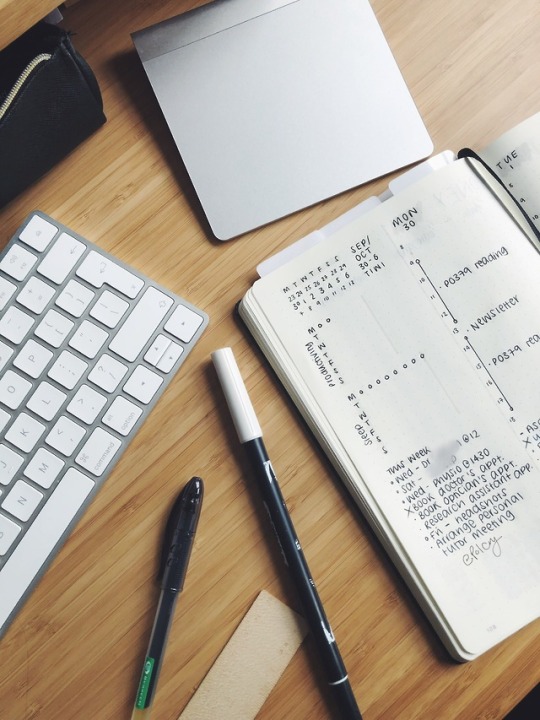
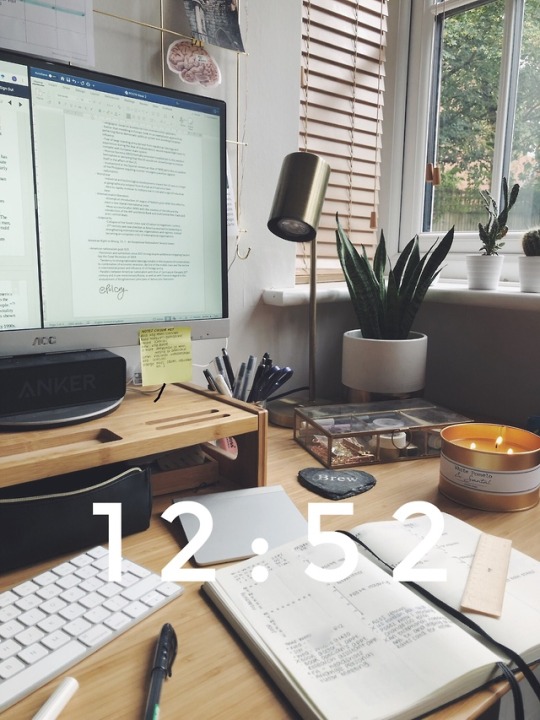
30.9.19 | 8/100 days of productivity | bye bye (BA)by
It is officially my last first day of school (jk I’m doing a Master’s). Somehow have carved out time to actually do uni work in preparation for my first lecture of the year tomorrow – new year new me amirite?
3K notes
·
View notes
Photo

Classic Literature
Canterbury Tales - Geoffrey Chaucer
Macbeth - Shakespeare
Jane Eyre - Charlotte Brontë
Bleak House - Charles Dickens
Pride and Prejudice - Jane Austen
The Great Gatsby - F Scott Fitzgerald
Foreign Language Literature
The Iliad - Homer
Bonjour Tristesse - Françoise Sagan
Die Blechtrommel - Günter Grass
Cien años de soledad - Gabriel García Márquez
Biology & Medicine
Life Ascending - Nick Lane
The Emperor of all Maladies - Siddhartha Mukherjee
Do no Harm - Henry Marsh
The Double Helix - James D Watson
Physics
A Brief History of Time - Stephen Hawking
Packing for Mars - Mary Roach
The Elegant Universe - Brian Greene
The Emperor’s New Mind - Roger Penrose
Chemistry
The Disappearing Spoon - Sam Kean
Bad Science - Ben Goldacre
Gunpowder - Jack Kelly
Uranium - Thomas Zoellner
Psychology
Blink - Malcolm Gladwell
The Man who Mistook his Wife for a Hat - Oliver Sacks
Opening Skinner’s Box - Lauren Slater
Thinking, Fast and Slow - Daniel Kahneman
The Language Instinct - Steven Pinker
Geography & Anthropology
Global Shift - Peter Dicken
Blood and Earth - Kevin Bales
Structural Anthropology - Claude Levi Strauss
Earth: an Intimate History - Richard Fortey
Volcanism - Hans Ulrich Schminke
Economics & Politics
Freakonomics - Steven D Levitt
This Changes Everything - Naomi Klein
Buyology - Martin Lindstrom
Other People’s Money - John Kay
Inequality: What can be done? - Anthony B Atkinson
Maths
Fermat’s Last Theroem - Simon Singh
The Golden Ratio - Mario Livio
The Infinite Book - John D Barrow
An Imaginary Tale - Paul J Nahin
In Pursuit of the Unknown - Ian Stewart
History
Victorian London - Liza Picard
Salt: a World History - Mark Kurlansky
The History of the Ancient World - Susan Wise Bauer
Destiny Disrupted - Tamim Ansary
The German Genius - Peter Watson
Philosophy & Theology
Thus Spoke Zarathustra - Friedrich Nietzsche
What is Called Thinking? - Martin Heidegger
The Stranger - Albert Camus
A History of God - Karen Armstrong
Religion for Atheists - Alain de Botton
Art & Art History
Ways of Seeing - John Berger
The Age of Insight - Eric R Kandel
Art Through the Ages - Helen Gardner
The Yellow House - Martin Gayford
The Power of Art - Simon Schama
Music
How Music Works - David Byrne
The Rest is Noise - Alex Ross
The Joy of Music - Leonard Bernstein
The Classical Style - Charles Rosen
[This is by no means a perfect list and I had real trouble finding books written by female authors, specifically in more scientific areas, so if you have any recommendations then send them to me and I’ll update this list]
6K notes
·
View notes
Text
Back to School: How to Get an A*/8 or 9 in an English Lit Essay!

Happy September, everyone!
As we all get our gears in motion to start a new year, I thought I would share my top tips for scoring the highest marks in English Literature essays.
(P.S. Lots of these tips are applicable to other subjects too)
1. Don’t write about the character as if they are real
Unfortunately, this is a common error in English Lit essays. It is absolutely imperative to remember that a character is not a person, but is a construct of the writer in order to present an idea or theme. No matter the question, you should be linking your answer back to the writer’s ideas and theme of the text, even if it doesn’t seem obvious what the theme is on the first inspection of the question. Using the author’s name frequently in your essay will demonstrate that you recognise the character is not a real person - ‘Shakespeare portrays Macbeth as a tragic hero, as defined by Aristotle as…’
2. Don’t analyse the plot
Avoid analysing the plot or when things happen in the text. Don’t write ‘When X happens it makes us think Y’. Instead:
Analyse the writer’s use of language, structure and form to create meaning
Do a close language analysis of specific words/phrases, including a sound analysis (plosives, assonance, etc.)
Do a structural analysis of what happens when and why that’s important (Freytag’s pyramid)
Do an analysis of form (stage directions, dramatic monologue, etc.)
3. Keep your answer relevant throughout
You need to be explicitly answering the question - not going off on a tangent nor trying to change the question to suit an answer that you want to write. One way of avoiding this is by starting each paragraph with a topic sentence, summarising what that paragraph is going to be about and how it answers the question. Another method is simply by rewording the question into your answer at the start and end of every paragraph. At least. For greater impact, include synonyms of the word, which can also help with the readability of your answer.
4. Avoid PEE/PEEL/etc. where you can
Thousands of students are taught the same, basic Point-Evidence-Explain (or variant) analytical paragraph structure. If you want to stand out, show academic strength, and achieve the highest marks then you must break free from the chains of PEE! (This also applies for your introduction format. ‘In this essay, I will argue…’ gets pretty dull after reading it 100 times)
For my students, I will be teaching them to write What-How-Why paragraphs:
WHAT has the writer done?
HOW have they done it?
WHY have they done it/is it effective?
This way, your focus is always on why the writer has chosen to use that specific language/structure/form, but it allows you to be creative in crafting your response. Being able to discuss the ‘why’ of literature is the key to unlocking the highest grades. Reading through examiners’ reports this summer has made one thing clear - it is not enough to merely spot linguistic devices or structural features. You must explain why the writer has chosen them and why that is an effective choice (or not).
5. Avoid sweeping statements about context
The main advice here is to only include comments about the context of the text if it adds to the analytical point that you are making. They should not be a bolt-on sentence, but they should enhance your answer.
Further, sweeping claims like ‘All Jacobean women were oppressed by society’ is far too vague. On the other hand, a comment like ‘Lady Macbeth is a disturbing example of womanhood because she denies her gender at a time where the role of a woman was clear-cut, even patriarchal, in Jacobean society’ suggests that you have a greater understanding of how context can influence the writer’s choices.
6. A plan is your best friend
Always, always make time to plan your answer. A method I recommend is, first, circling the key words in the question (character/theme, what you are asked to do, where in the text you are asked to look, etc.). Secondly, write all of your ideas down onto the page, highlighting parts from the extract if you have that in front of you. Finally, select a judicious number of points that you are going to talk about (quality not quantity here) and number the order in which you are going to make them.
If you are writing a comparative essay, each paragraph must start and end with a comparative point about whatever it is you are comparing (characters/themes/etc.) I suggest the following format:
‘X is presented in both text A and text B. However, in A the author uses devices 1 and 2 to demonstrate X. On the other hand, in B, the author demonstrates X via use of devices 3 and 4.’ Then write one paragraph for each text. Repeat this again for another similarity. And again for a third - if you think that is appropriate.
Photo credit @eintsein 🌻
12K notes
·
View notes
Text
Random tips/things I’ve learned as a university student
Believe it or not, your old notebook is enough. If you’re like me, you’re mostly tempted to buy new ones because AestheticTM and also because you’re worried that you will run out of pages. Trust me, your old notebook will be enough!!
36458734 stationery and pens are not necessary because you will not get time to use them in class. However, if it helps you, you can buy 36458734 pens to rewrite your notes from home.
Rewrite your notes.
This always helps!! Even if you don’t have plans to make your notes aesthetic and colorful, you will need to rewrite your notes because
a) notes you take from class are 100% going to be scattered
b) when you rewrite your notes you can compare what your proff said in class and ppts/textbooks/google, etc
c) rewriting helps you remember stuff better and helps you understand what topics are important and what are not.
Also, I generally rewrite my notes at the end of the week. This way I can join one or more topics together, do my extra research and put them in the notes as well.
Google everything.
Learned a new topic in class today ? Great. Now google it and see what you find. You keep finding terms you don’t know on google ? Great. Google those terms as well.
Sit in the first row.
I know, I know, if you sit in the first row you might be labelled as the “nerd” of the class or the teachers will keep asking you questions or back benchers have all the fun! But, sitting in the first row has helped me A LOT in ways that I can’t explain. I’m someone who has attention disorder and I find it extremely hard to pay attention when I have 2-3 hours of the same class, and sitting in the first row makes my attention span 10 times better.
Prepare your CV.
If you are a new uni student then you definitely will not have much (if anything) to put in your CV but still DO IT! It will put in perspective where you stand and how far away from your goal you are. Don’t forget to keep updating your CV.
Here is a masterpost on making CV and resume that I think is very helpful.
Learn outside your syllabus.
What I mean by this is that stick to your course but do don’t stick to your syllabus. I am a computer science student and in the first semester we only had Python (as a programming lang) to learn in class, but I went ahead and learned HTML as well (let’s not focus on how well I learned it) ………… because why not!
Surround yourself by people who are hardworking and are a positive influence. Your friend group/squad will influence you in a huge way so make sure those influences and changes are actually good for you.
Don’t be afraid to ask for help from teachers or your fellow students. And if you have a friend who is really good at a certain subject then make sure you sit with them during those classes.
Make study plans a month prior to your exams. Even if you know that there is only 50% chance of you following the timetable, make it!! Visualizing your study journey will help maintain a mental sketch of it.
2K notes
·
View notes
Text
CHEAT SHEETS FOR EVERYTHING
adult cheat sheet
reference cheat sheet
reference cheat sheet 2
reference cheat sheet 3
reference cheat sheet 4
self care cheat sheet
boredom cheat sheet
getting a job cheat sheet
school cheat sheet
school cheat sheet 2
23K notes
·
View notes
Text

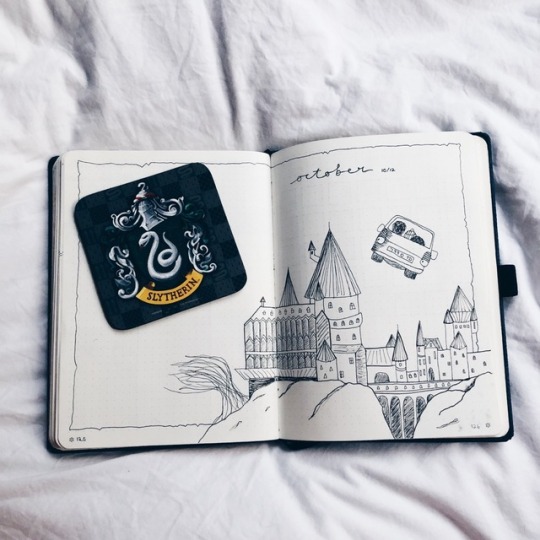
bullet journal spread for october🤩 have been quite stressed out (and behind with everything lately) but was inspired today when I had a second of free time✨
| inspiration |
56 notes
·
View notes
Photo

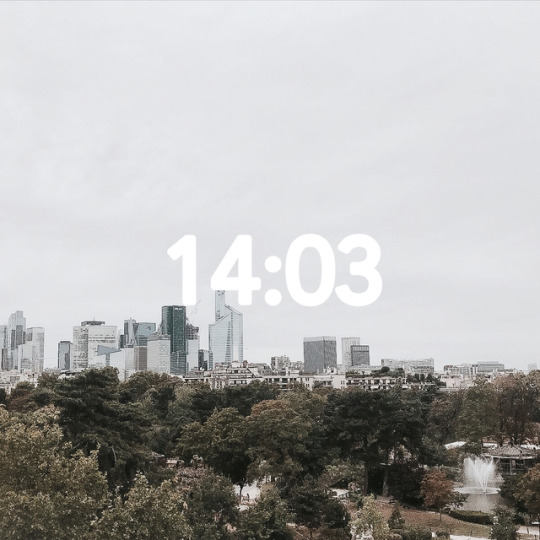


+ 10.9.2018
My first day of the summer course was truly amazing! I made a lot of new friends and I’m enjoying everything so much: the dorms, the course, the teachers, my friends,… :) I took these pictures a while ago!
( click on the pictures for hq )
2K notes
·
View notes
Photo
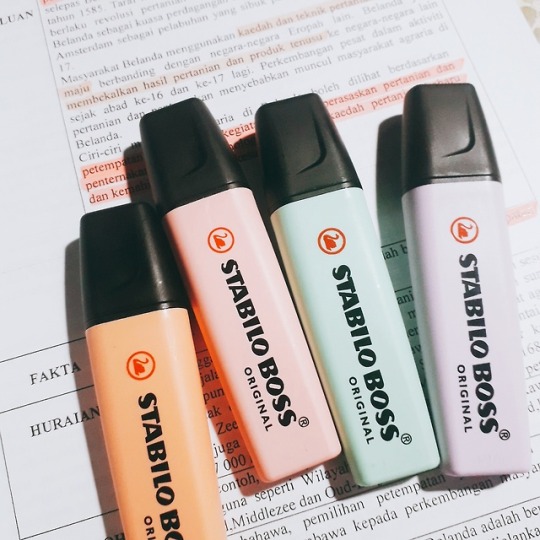
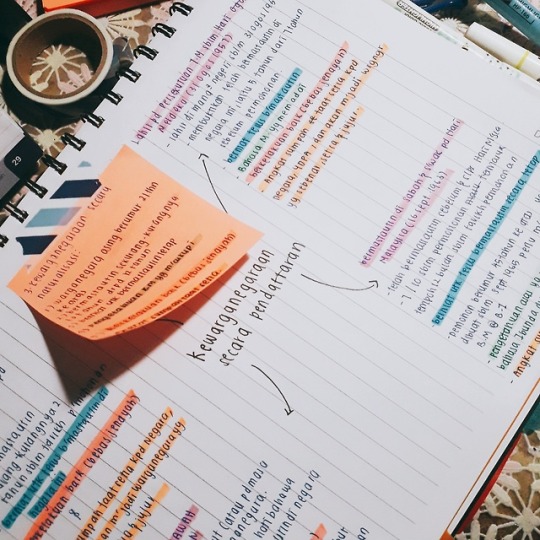
ㅡ ; ♡✧( ु•⌄• )
hELLO my mom bought me highlighters yesterday and i feel like i don’t even want to use it because the colors are so pretty ;-; anyways this is the notes i made yesterday for general studies! that part came out on exam today so glad i did a little note of it ;-;
88 notes
·
View notes
Photo
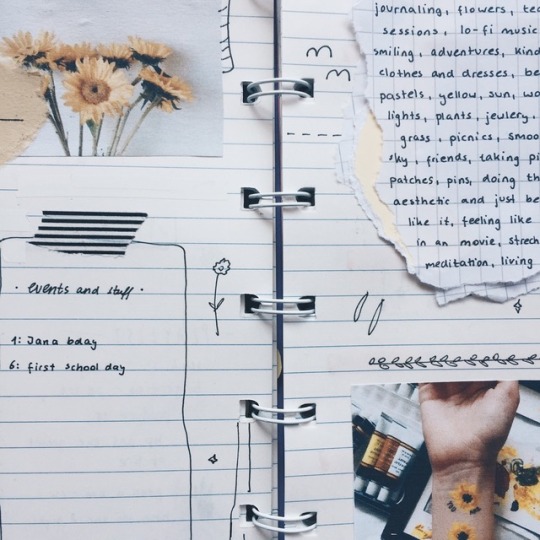

august is yellow 🌟 my last week of summer holiday just started… where has time gone? this summer was full of fruits, especially blueberries, heat and learning. nevertheless I’m still excited to back to school, it’s a bittersweet feeling leaving summer behind, even though the heat is still present. still need to copy a crap ton of vocab and revise chem, but let’s not stress about that. thank you summer for teaching me softness and letting myself go. until next year. 🎧: rendezvous 18.6y — loona yyxy // 31. 07. 18
129 notes
·
View notes
Text
Anxiety and school
Hello, so I know exam season is over and most of us are on summer break now but I thought it would be a good time to do some tips for helping with anxiety as you can have some time to get familiar with coping mechanisms so that by the time exams roll around again you’ll have things to turn to. And as I am *cough* experienced with anxiety I sorta know what I’m doing. So here we go:
Apps
Apps can be pretty helpful they’re different for everyone but I find them helpful
STOPP app by Submarine Ltdhttps://itunes.apple.com/gb/app/stopp-app/id1242381115?mt=8
It’s made by a healthcare service here in the UK it runs you through the STOPP method of calming you down and looking at your emotions and reactions objectively.
Headspace: Guided Meditation by Headspace meditation limitedhttps://itunes.apple.com/gb/app/headspace-guided-meditation/id493145008?mt=8
Its a meditation app with I think works really well. I, personally, can't keep up with meditating daily but whatever works for you. I definitely suggest you try it
Calm by Calm.comhttps://itunes.apple.com/gb/app/calm/id571800810?mt=8
A similar app, it has meditation guides but also sleep stories and breathing patterns.
Strategies
54321
This strategy is a grounding mechanism and if you're freaking out helps bring you back down a bit
5 - five things you can see. What do they look like? What are their colours? What are their shapes?
4 - four things you can touch. What's their texture? What does it remind you of?
3 - three things you can hear. What are they? What could they be? Are they familiar?
2 - two things you can taste. This one’s kinda obscure but if you can't currently taste anything imagine something. My advice would be imagine something bitter and something sweet.
1 - take one deep breath
Breathing
In for 4
Hold for 7
Out for 8
Really simple just repeat until you feel better
Notebooks 📓
Okay I’m a bit of a notebook fanatic but they help. Write👏everything 👏down👏. I know you’re gonna say you can remember that homework for the couple hours until you’re gonna go do it but you will forget and you know you will. Just write it down. Okay. Please?
It doesn’t have to be need you just need to stop keeping everything in your head. Write down as much as you can it will help.
Sleep 💤
Teenagers need 10hrs of sleep. Ten hours. That means you need to sleep at for ten hours to function you need that so sleep. Make a route your brain finds it easier to do things if you’ve done them before. It’ll makbe it easier to sleep next time.
Okay that’s all this time I’ll probably add more to this I hope it helps.
1 note
·
View note
Text
reblog if ur a studyblr!
i’m desperate for new people to follow :-))
941 notes
·
View notes

